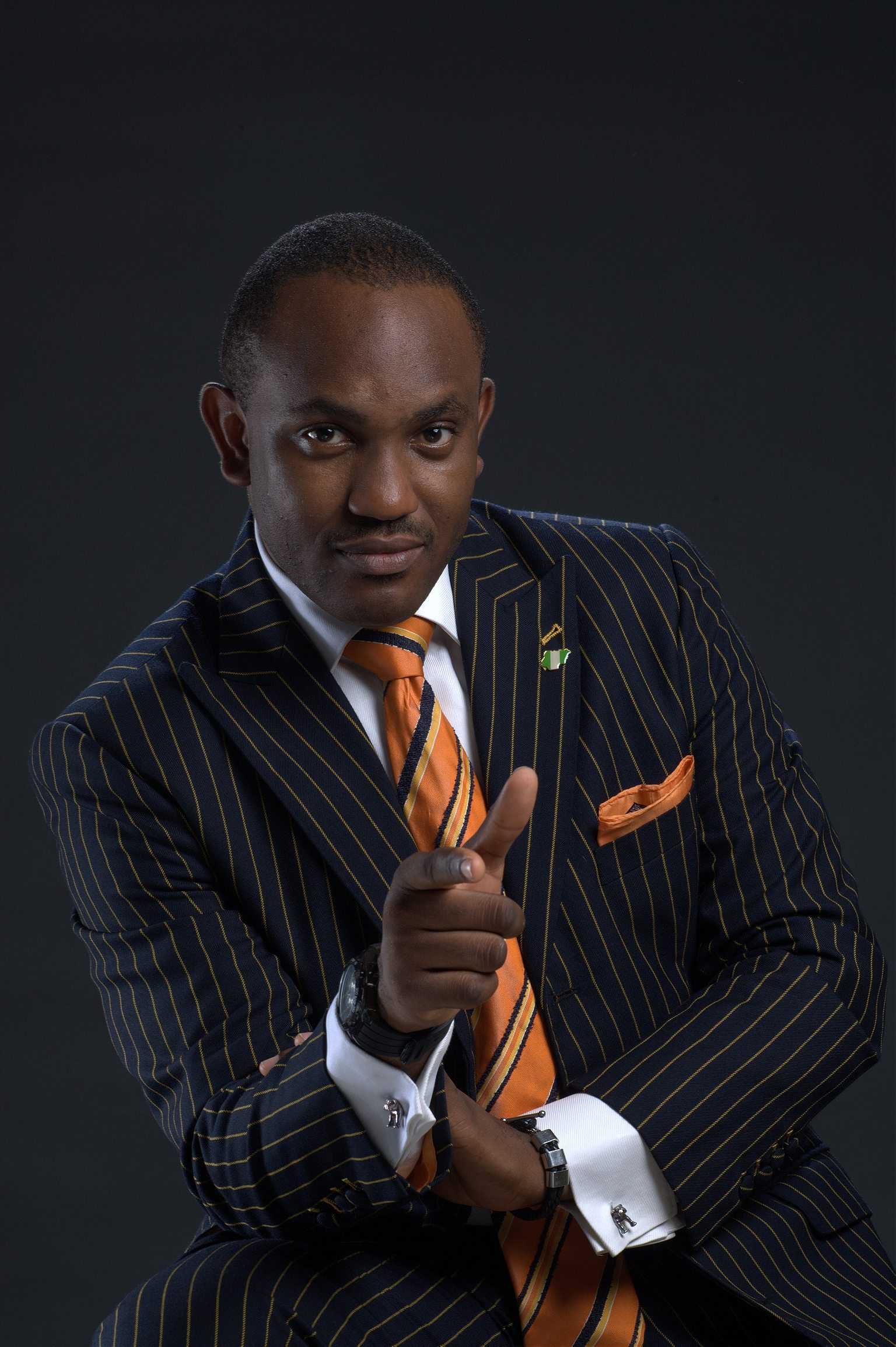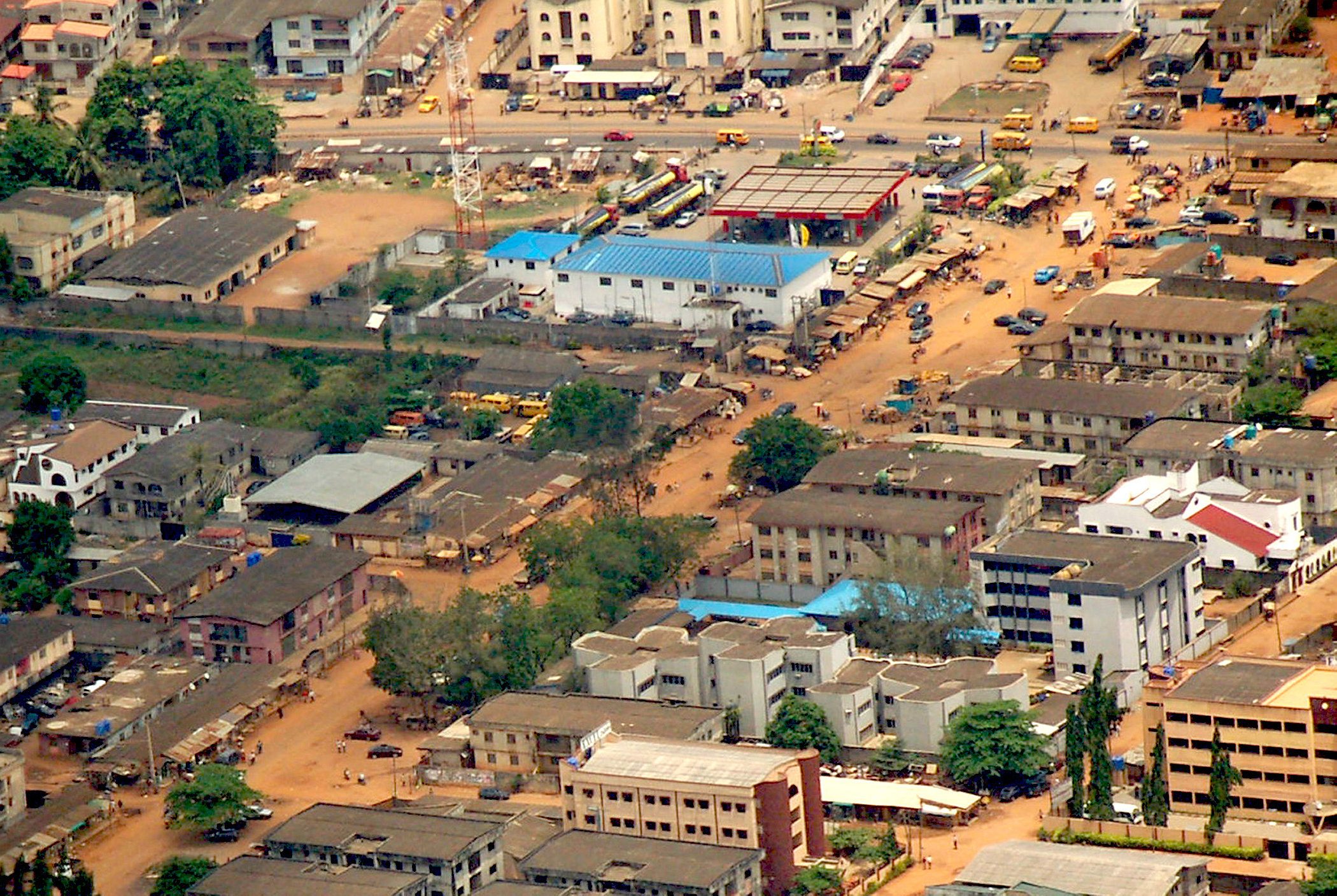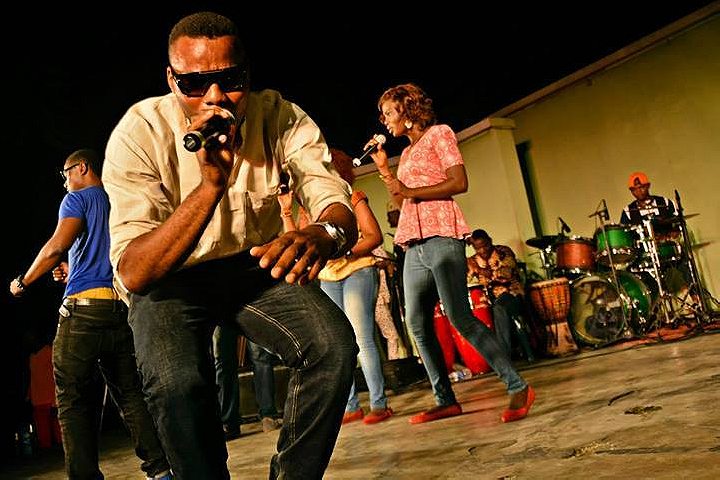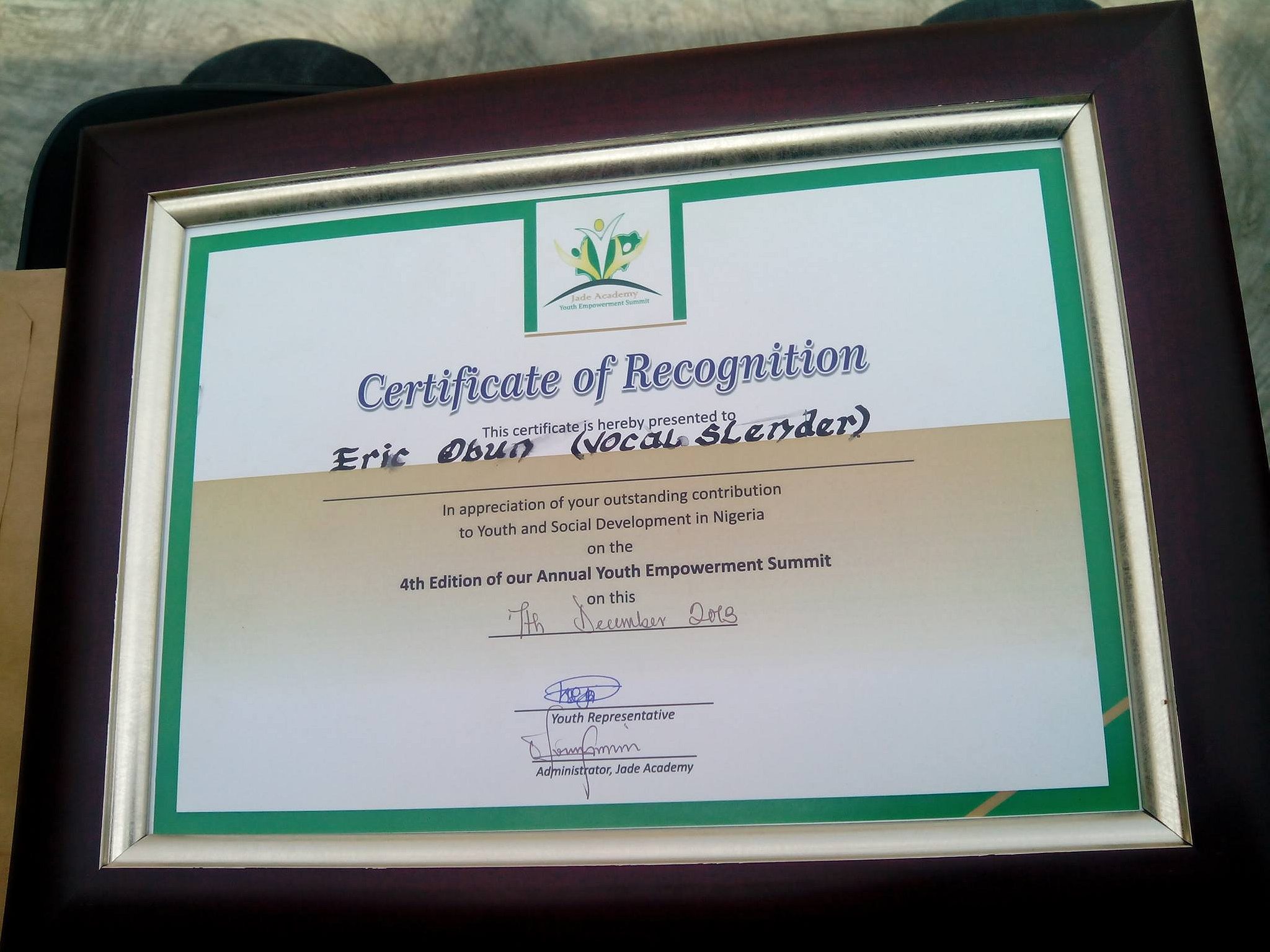They used to hustle SIM cards or pick trash at the dump, but now they’ve got corporate speaking gigs and silk pocket squares. Meet the new motivational speakers of Nigeria.
LAGOS, Nigeria—
Cloistered off from the Lagos sunshine in a thickly carpeted hotel conference room, volunteers from the Redeemed Christian Church of God Eagles Nest Youth Church are listening to a tale of redemption.
“Several years ago I was a two-time college dropout,” says Steve Harris, one of Lagos’s most high profile motivational speakers. “When life places a sticker and brands you as an incompetent or a ne’er-do-well, you need to get off your butt—excuse me—and remind them that this is not you.”
Harris, a handsome man sporting epaulettes on his grey jacket, spins a good story out of his journey from a hapless young man borrowing money off his baby sister to a gold watch-clad businessman. The story’s pitfalls and diversions (“Women,” he says at one point, dropping in to the elongated vowels of Nigerian slang, “are a capital intensive project.”), only make him more relatable.

Laughing, clapping, and earnestly nodding along, the young men and women around the U-shaped conference table echo his trademark slogan like a catechism.
“Like I always say, ‘It’s not what you don’t have that limits you…,’ ” he begins.
“‘It’s what you have but don’t know how to use,’ ” the audience responds in unison.
Harris is one of roughly a dozen people in Lagos making serious money as a motivational speaker, and many more are hoping to do the same. He offered this seminar on “personal mastery” at a heavily discounted rate because he was speaking to a church group, but in the corporate world he commands up to $10,000 for a day’s training.
Ten years ago motivational speaking barely existed here, but practitioners say demand is growing. Nigeria’s economy averaged seven percent annual growth in the last decade, but roughly 60 percent of the country’s people still live in poverty. In Lagos, a city of hustlers, there is a feeling that dreaming bigger and working harder will help bridge the gap between potential and performance, and motivational speaking is becoming big business.
“Inspiration and motivation are beginning to become big deals…we get so many invitations that we turn (some) down,” Harris tells me. Nigerians, he says, “are in need of hope – they’re looking for something that tells them it can be better.”

Hunger for success is visible everywhere in Lagos, where street hawkers sell copies of Forbes magazine alongside packs of gum. Oil and the massive size of the domestic market have gilded a tiny minority of Nigerians in riches in recent years. The country’s rate of private jet purchasing has begun to rival China’s. Although Nigeria’s announcement of its place as Africa’s GDP leader in April was overshadowed by Boko Haram’s recent attacks and mass kidnapping of teenage girls, Lagos remains a magnet for the ambitious.
The path to success is hard here, where infrastructure and education are inadequate and corruption rife, but the prizes glitter all the more brightly for it. Hip-hop artists loom over congested Lagos highways in lucrative cellphone ads, teasing drivers below with a glimpse of what the good life looks like. For those like Harris who are not only living the African Dream, but making a living off the very idea of it, a personal rags-to-riches tale is a valuable asset.
As Paul Foh sits in the lobby of a consultancy firm with a green silk handkerchief sprouting from his breast pocket, there is little to suggest that 10 years ago he was a street vendor in the oil town of Port Harcourt. He has scant sympathy for those who blame corruption or the education system for their lack of opportunity. “I used to sell recharge cards on the street,” Foh says. “Today I speak and I’m paid crazily well for what I do. Are you going to blame the government till you get to your grave?”

Foh’s life changed after he heard a talk by Fela Durotoye, often referred to as the godfather of Nigeria’s motivational speaking industry. Foh, who says the talk showed him his calling, held his first seminar on how to offer “exceptional customer service” shortly afterward in a hall his landlord let him use for free. Only two people came; one was his then-girlfriend.
Undaunted, he began writing a newsletter on “goal-setting and personal development.” One day an oil company executive came across the newsletter and invited Foh to give a lecture to his employees.
Today Foh is a highly sought motivation speaker. While Harris works a room with the easy rapport of a stand-up comedian, Foh is more of an orator, whose study of speechmakers from Winston Churchill to Barack Obama has taught him to extract maximum dramatic impact from his words.

“Martin Luther King is very good with metaphors,” he says, slipping into a powerful, if not strictly accurate, impression of King’s ‘I Have a Dream’ speech: “America wrote us a check, and we took the check to the bank, and the check has bounced!”
The rhetoric of the civil rights movement may seem out of place in an industry whose bread and butter consists of training bank and oil company employees to be better at their jobs. But Foh and Harris have ambitions beyond corporate training. They want to inspire young people to create opportunities for themselves, and to have the kind of influence over them that rappers and singers have today. Both men believe that one day companies will simply pay motivational speakers to endorse brands and products, like they do musicians.
“Musicians can’t close—we’re closers,” says Harris.
Harris has already taken his can-do philosophy outside the business sphere, publishing a flamboyantly-titled book: From Friend to Fiancee: Get Him to Want You as Much as You Want Him Without Letting Him Know You Want Him to Want You.
People tell me every time, ‘You’re not a motivational speaker—you’re a transformer’
Fela Durotoye—the famed speaker Foh and Harris revere—has his sights set even higher. “I’m not a businessman—I used to be,” he explains from his Lagos office, which is cluttered with awards (“in recognition of your role as a model of endless possibility”) from the charities and professional bodies he has addressed. “People tell me every time, ‘You’re not a motivational speaker—you’re a transformer.’ ”
Durotoye started out as a management consultant, offering advice on corporate strategy and customer service, but became famous for his ability to stir and connect with people on an emotional level. He often reduced audiences to tears. “Every time I trained people in customer service, on relationships, on selling skills, they would say to me, ‘Oh my God, we’re so inspired,’ ” he says.
He is now scaling back on fee-paying corporate work in order to pursue a new project training speakers across the country to preach an exalted, if broadly-defined, set of values intended to make Nigeria “the most desirable country in the world.”
“I’m not a consultant. I’m not a motivational speaker. I’m a nation-builder who transforms people to transform nations,” he says, with no shortage of confidence. “I’m a man on a mission.” A cynic might suggest Nigerians are struggling to achieve their dreams due to structural economic obstacles rather than attitude problems, but Durotoye disagrees. “Obstacles are illusions,” he insists.
After leaving school at 15 he worked as a scavenger on garbage mounds for a decade
Watching young Nigerians strive to better their position, it’s hard not to feel the weight of the odds stacked against them however. Eric Obuh is trying to hustle his way up the motivational speaking game. I meet him near his home in the teeming slum of Ajegunle.
Obuh, 32, shows up at a fast-food restaurant wearing a starched striped shirt and carrying a Chinese smartphone. He tells me that he has had to fend for himself since a very young age, and after leaving school at 15 he worked as a scavenger on garbage mounds for a decade.
“In the dump I found good books that inspired me,” he says. “Aristotle, Plato, Socrates… It changed the way I see life. Instead of putting blame on my parents or society, I decided to take responsibility for my life.”
By night he performed music—a kind of fusion of dancehall and hip-hop—under the stage name Vocal Slender, and when a 2010 BBC documentary on Lagos picked him up as a central character, it seemed as though his big break had come.

Although success on YouTube and a UK tour have not translated into a record deal, Obuh is trying to turn his newfound fame into an opportunity for himself and his community. He got involved in charity work, took speaking lessons at a Lagos Toastmasters club, and created his own website (tagline: “Your Glory is Tied to Your Story.”) In April, he received an award from Google’s Africa Connected initiative for inspiring people.
He now gets invitations from churches, schools, and charities to give motivational talks. The problem is these clients often don’t pay, though he does sometimes sells CDs of his music at the events for roughly $3 each.
None of life’s hardships has dented Obuh’s optimism. He’s convinced big things lie ahead, in both music and in motivational speaking. “God has been preparing me for a bigger stage,” he says.

Inam Wilson, a Lagos-based lawyer and an official with the Toastmasters organization, has mixed feelings about Nigeria’s motivational speaking boom. On the one hand, as a believer in the county’s potential himself, Wilson applauds speakers of “substance” who encourage real personal and economic development. He is less impressed with the banality-peddling imitators this new field has spawned.
“They say Lagos is a place where anything can happen, and it can happen at the snap of a finger. It’s a place where people believe they get suddenly to be millionaires. Some of us believe in process—block by block, brick by brick,” he says.
“In Nigeria we have two issues. One is religion—we believe so much God is watching us. That has a negative side—you become dependent on God.
“The other is a sense of ‘if he can do it, I can do it!’ without looking at the details of why he is able to do it.”
Wilson ventures a heresy: “You may not fulfill your dreams.”
[Header image: “Wax market” by Zouzou Wizman, used under CC BY 2.0]
